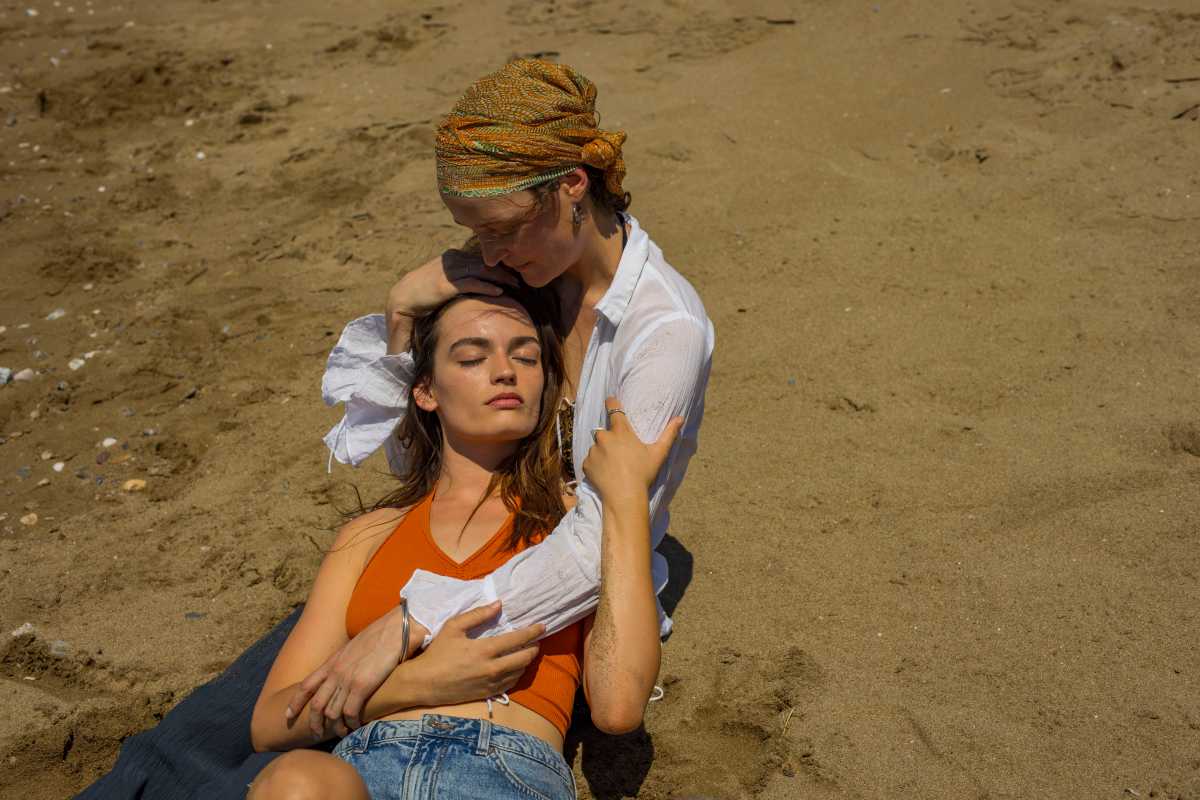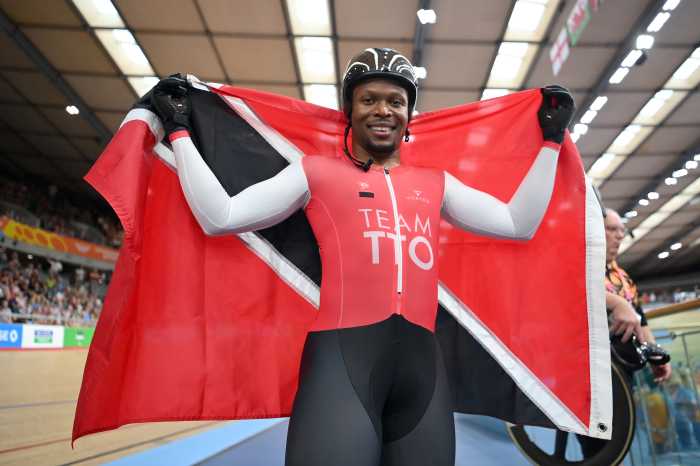The soporific drama, “Hot Milk,” adapted from Deborah Levy’s celebrated novel, has Sofia (Emma Mackey) caring for her ailing mother, Rose (out actress Fiona Shaw) in Spain. Rose, who is in a wheelchair, is seeking help from Gómez (Vincent Perez), who hopes to get at the root of her undiagnosed — and possibly imagined — pain.
Rose is formidable, opinionated, and often needy. She dominates this film so much that as she repeatedly asks for water, viewers might want to go fetch her a glass. (The titular hot milk is never mentioned.) Emma, in contrast, mostly sulks through the film until she meets Ingrid (Vicky Krieps), a free spirit who apparently has never heard of Margaret Mead, the subject of Emma’s unfinished doctorate.
Her relationship with Ingrid provides Sofia a much-needed break from Rose. The young women periodically meet and kiss. One night, they take a walk and find a tree with the branches screwed into place. Perhaps it is a film prop, one wonders. It is symbolic of the film’s artificiality.
Nothing in “Hot Milk” seems quite right or real. In her debut as a director, Rebecca Lenkiewicz, who also wrote the screenplay, aims for a dream-like atmosphere but the whole film is muddled. The risible dialogue feels like a series of non-sequiturs at times. The images are crisp — the film is beautifully lensed by cinematographers Si Bell and Christopher Blauvelt — but the scenes do not always make much sense. There are shots of Sofia in a wheelchair that are dreams, but like a black-and-white snippet of a jellyfish that resembles the mushroom cloud of an atomic bomb, they come out of nowhere and go nowhere. Even Sofia’s research on Margaret Mead seems peppered in to show her “working,” but the clips feel meaningless; they do not comment on the central narrative, which concerns each woman trying to break free of their circumstances.
The main drama feels underdeveloped, and it is difficult to become invested with any of the characters. Rose acts mean when she isn’t being mysterious. (She harbors a secret about her late sister Mary that eventually comes to light when Sofia presses her about it.) Most of the mother/daughter exchanges are fraught. When Rose learns that Sofia wants to visit her father, whom she has not seen in 11 years, she gets angry. When Sofia learns that Rose is considering amputating her legs, she gets angry. It is hard to pick sides because neither of these unhappy women is particularly likable.
Sofia’s relationship with Ingrid is equally frustrating, in part because the women have more of an attraction than a connection. Ingrid is unconventional, tossing boots into the ocean, which Sofia goes to retrieve, suggesting the unbalanced dynamic between them. Later, Sophia throws Ingrid’s phone into the ocean, perhaps as payback for the aforementioned boots. But what these women get from each other, other than some temporary company, is unclear.
Ingrid becomes mildly interesting when she blurts out, “I killed someone,” but the truth, when it is revealed, confounds expectations. When Ingrid suggests she will return to Berlin, Sofia’s response lacks emotion.
Most of “Hot Milk” induces boredom. The only dramatic tension comes from the secrets that are told and the ridiculous ending that probably worked better on the page. The film is so tedious that it could lull viewers to sleep were it not for the repeated use of a barking dog (which irritates Rose and Sofia no end), children practicing flamenco, or a ringing telephone that goes unanswered.
The performances fail to elevate the leaden material. Shaw is fun to watch because she excels at being irascible. Watching her meetings with Gómez provides some interest because he is easily outmatched. (Perez, who has long had a magnetic quality on screen, barely registers here).
Lenkiewicz frames Emma Mackey artfully to capture her expressions and moodiness, but the strikingly beautiful actress’ performance is blank, and that drains her of sympathy. The film illustrates her rebelliousness by having Sofia blow smoke on Rose’s dress after being told not to, or by breaking a dinner plate in anger. But there is not enough character development. Her final act of defiance is meant to be powerful, but, like most of Sofia’s actions, and Mackey’s performance, it generates a shrug.
In support, Vicky Krieps seems to have rode in on a horse from another, better film. Her air of insouciance is refreshing even if Ingrid is inscrutable.
At one point, a character insists, “You have to embrace life, not endure it!” Unfortunately, “Hot Milk” is a film that is must be endured, not embraced.
“Hot Milk” | Directed by Rebecca Lenkiewicz | Opening June 27 at the IFC Center | Distributed by IFC Films.





































